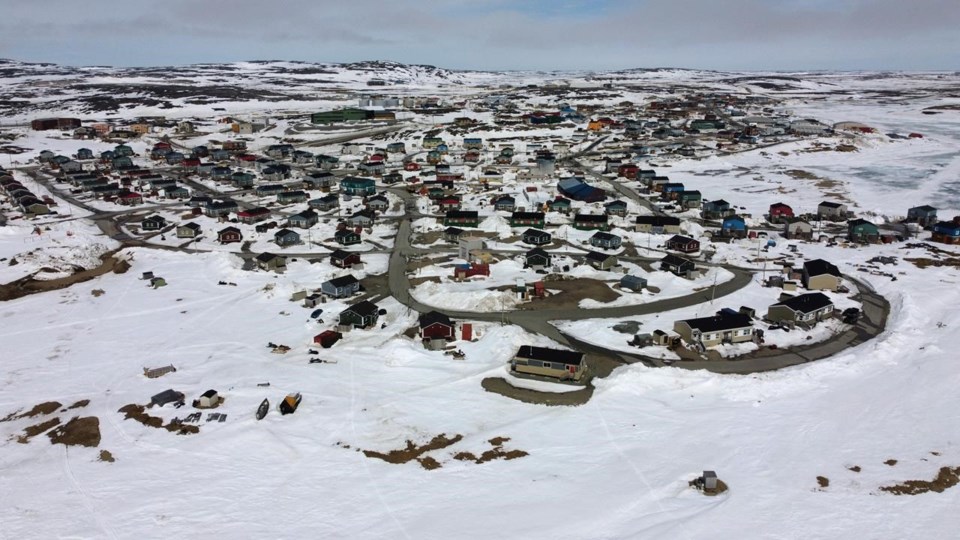MONTREAL — Health officials in northern Quebec say they are trying to hire more nurses and Inuit staff after a coroner's report released last month linked the deaths of 10 infants in the region to overcrowding.
A recruitment drive is underway to hire more nurses to vaccinate children against disease and offer preventive health-care services to the Inuit communities of Nunavik, Ariane Bedard, spokesperson for the Nunavik Regional Board of Health and Social Services, said Thursday in an email.
Bedard said the health agency is also trying to hire Inuit staff who understand the needs of residents and who can speak Inuktitut. But she didn't say how the agency would directly address the overcrowding concerns mentioned in the report by Quebec coroner Geneviève Thériault.
She referred all questions about overcrowding to the local housing bureau, which did not immediately respond to a request for comment.
"The situation is very complex, and unfortunately, the (COVID-19) pandemic has greatly weakened front-line services in Nunavik, as elsewhere," Bedard said.
In her report, Thériault called on the provincial and federal governments to invest the necessary resources to quickly offer safe social housing to families in the northern region of Quebec. She focused on the death of three-month-old Jaylen Etok, who died in April 2021 in the Inuit village of Kangiqsualujjuaq.
The infant, the coroner said, slept in the same bed as adults because the child did not have a crib or a cradle. Thériault said versions of what happened to the child are contradictory.
On April 25, 2021, the infant was asleep on his back on a double bed. The adults present in the home had consumed alcohol and some had consumed cannabis, the coroner said. One adult fell asleep on the same bed as the baby boy between 10 p.m. and 11 p.m. Witness accounts differ, but a second adult may have also fallen asleep in the bed sometime after, Thériault said.
The coroner said that according to one version of events, the second adult walked into the room and found the boy inert and lying on his back on the bed, away from the first adult. In another version of events, the first adult woke up to find the boy under the arm of the second adult, who woke up and either rolled on top of the baby or held the child closely.
"It's impossible for me to determine which version is more plausible," Thériault said.
"The cause of death of little Jaylen Etok remains undetermined .... It is therefore difficult for me to conclude whether the death was attributable to asphyxiation by suffocation."
However, she also drew similar conclusions in cases involving nine other infants in Nunavik who also died in 2021 of undetermined causes or sudden infant death syndrome. The coroner said overcrowding was a recurring risk factor in all of those deaths.
"Thus, in my opinion, to reduce the risk of sudden infant death syndrome in Nunavik, several things should be in place," she said. "First of all, it seems urgent to me to ensure access for each family to healthy housing of appropriate size for the size of the household."
Crown-Indigenous Relations and Northern Affairs Canada said in an email that in 2022, the federal government budgeted $845 million over five years for Indigenous housing. The department did not specify if any actions were being taken in the short term to reduce overcrowding in Quebec's Nunavik region.
Quebec's secretariat for relations with First Nations and Inuit peoples said it wouldn't comment before reading the coroner's report — dated Oct. 6.
Meanwhile, Quebec's Health Department said it will "take note" of the coroner's report. In an email, spokesperson Marie-Claude Lacasse said that within a three-month period, the province will follow up on the coroner's recommendation that the department rapidly increase the number of front-line workers in Nunavik, such as midwives, family doctors and pediatricians.
This report by The Canadian Press was first published Nov. 10, 2022.
---
This story was produced with the financial assistance of the Meta and Canadian Press News Fellowship.
Marisela Amador, The Canadian Press




